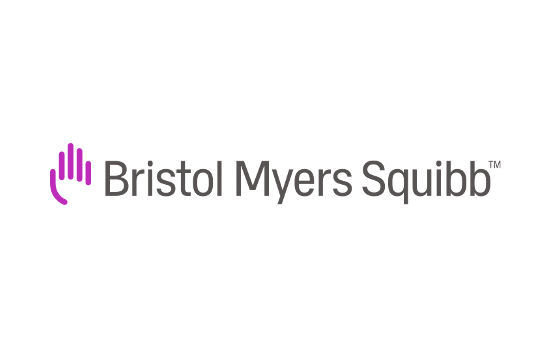 Bristol-Myers Squibb Company (NYSE: BMY) and PsiOxus Therapeutics, Ltd. (PsiOxus) today announced an agreement granting Bristol-Myers Squibb exclusive worldwide rights to NG-348, a pre-clinical stage, "armed" oncolytic virus with the goal of addressing solid tumors. The agreement is subject to clearance under the Hart-Scott-Rodino Antitrust Improvements Act.
Bristol-Myers Squibb Company (NYSE: BMY) and PsiOxus Therapeutics, Ltd. (PsiOxus) today announced an agreement granting Bristol-Myers Squibb exclusive worldwide rights to NG-348, a pre-clinical stage, "armed" oncolytic virus with the goal of addressing solid tumors. The agreement is subject to clearance under the Hart-Scott-Rodino Antitrust Improvements Act.
Oncolytic virus therapy utilizes modified viruses like the adenovirus (otherwise known as the common cold virus) that selectively replicate within tumor cells and not within normal tissue. Such viruses stimulate an inflammatory response in the tumor microenvironment, resulting in the accumulation of tumor infiltrating lymphocytes. The NG-348 virus uses PsiOxus' proprietary Tumor-Specific Immuno-gene Therapy (T-SIGn) platform to “arm” the virus with two additional immuno-therapeutic transgenes.
"PsiOxus has developed a novel platform of tumor-targeted delivery with oncolytic viruses focused on cancer and shares our passion for helping more patients respond to treatment," said Fouad Namouni, M.D., head of Development, Oncology, Bristol-Myers Squibb. "We are excited to bring our deep expertise in Immuno-Oncology to the continued development of NG-348 and to better understand the potential role of oncolytic viruses in enhancing checkpoint blockade in multiple types of cancer in the tumor microenvironment."
"NG-348, represents the first of our T-SIGn armed-viruses," stated John Beadle, M.D., Chief Executive Officer, PsiOxus, "We are thrilled to partner once again with Bristol-Myers Squibb, a leader in Immuno-Oncology, to drive this program into clinical development with the aim of providing a potential treatment to cancer patients."
Under the terms of the agreement, Bristol-Myers Squibb will grant PsiOxus a $50 million upfront payment and will be solely responsible for global clinical development and commercialization activities related to NG-348. PsiOxus is also eligible to receive up to $886 million in development, regulatory and sales-based milestones, as well as royalties on net sales. Bristol-Myers Squibb will also be responsible for providing PsiOxus funding to support activities related to the preclinical development of NG-348.
This agreement follows a June 2016 agreement between the two companies where Bristol-Myers Squibb and PsiOxus entered into an exclusive clinical collaboration to study enadenotucirev, PsiOxus' systemically administered "unarmed" oncolytic adenovirus therapeutic.
About NG-348
NG-348 is designed to drive T-cell immune responses locally within the tumor microenvironment. It is a transgene-modified variant of PsiOxus's enadenotucirev virus that encodes two immunomodulatory MiTe proteins in its genome. The two Membrane-integrated T-cell-engaging (MiTe) proteins encoded within NG-348 are:
- A membrane anchored full-length human CD80
- A membrane anchored antibody fragment specific for the T-cell receptor CD3 protein
When expressed together on the surface of NG-348 infected tumor cells, these two membrane proteins provide both the T-cell receptor (signal 1) and costimulatory (signal 2) activation signals required to polyclonally activate tumor-infiltrating T-cells in an antigen independent manner.
The expression of both transgenes encoded in the NG-348 virus is controlled by the endogenous virus major late promoter. This restricts expression of the proteins to the surface of cells permissive to virus infection (i.e. tumor cells) and prevents off-target expression in the cells from healthy tissues. NG-348 infected tumor cells can potently activate both CD4 and CD8 human T-cells, both in vitro and in a human tumor xenograft model. By contrast, non-tumor cells exposed to NG-348 do not express the MiTe proteins or activate T-cells.
About Bristol-Myers Squibb
Bristol-Myers Squibb is a global biopharmaceutical company whose mission is to discover, develop and deliver innovative medicines that help patients prevail over serious diseases.
About PsiOxus Therapeutics
PsiOxus Therapeutics aims to be the world's leading immuno-oncolytic virus company, delivering medicines of value to patients with cancer. Our work is product and platform based with a focus on discovering and developing innovative immunotherapies for the treatment of solid tumors. Our products utilize enadenotucirev, our proprietary first generation oncolytic virus and our proprietary platform technology for next generation oncolytic viruses, Tumor-Specific Immuno-Gene Therapy (T-SIGn). The T-SIGn therapy platform is based on the company's oncolytic virus, enadenotucirev, which has properties that allow it to be delivered systemically via intravenous administration and to replicate only in tumor cells. The anti-cancer capability can be further enhanced through "arming" - a process that involves the addition of new genes into the virus. The armed T-SIGn platform makes possible creation of a broad range of systemically delivered oncolytic immune therapeutics including oncolytic viruses that express one or more antibodies, cytokines, immunomodulatory proteins, or nucleotide (RNA) based payloads. The T-SIGn platform is in preclinical stage, while phase I/II clinical trials are ongoing with enadenotucirev in different tumor types and with different combinations including checkpoint inhibitors and conventional chemotherapeutics.